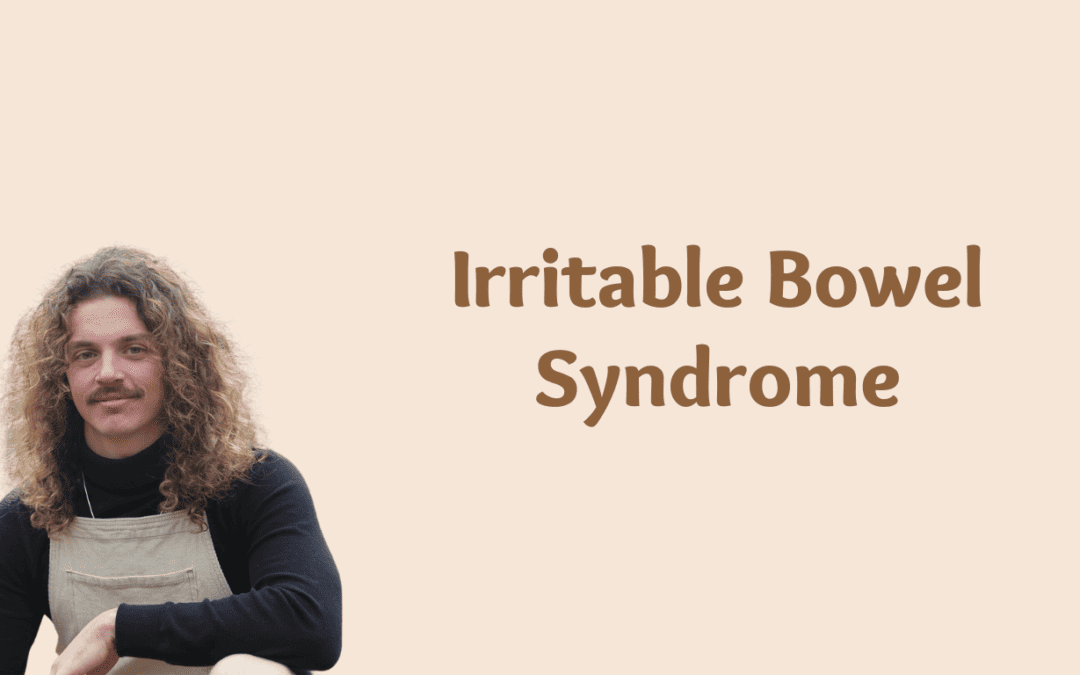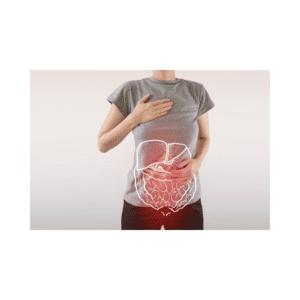Do you suffer from cramping, and pain in the abdomen? Are your symptoms relieved by having a bowel movement?
Do you experience a swollen or bloated abdomen, and an irregular pattern in your bowel movements, alternating between constipation and diarrhea /frequent loose stools?
Are your symptoms aggravated by stress or diet? (eg. dairy, wheat intake etc)
These factors can indicate you’re suffering from Irritable Bowel Syndrome (IBS), a disorder affecting the gut-brain axis that is twice as likely to affect women rather than men in the Western world.
What are the signs of IBS?
- Bloating, swelling, cramping, and pain in the abdomen
- Changes to bowel pattern- constipation and/or diarrhea
- Excessive flatulence
- Symptoms developed after infection/stress
- Symptoms aggravated by stress
There may also be
- phlegm or mucous in the stool or sticky stool
- inability to evacuate the bowel fully
- bowel urgency
- nausea and appetite disruption
Some IBS sufferers may also experience
- anxiety
- depression
- migraines & headaches
- low energy & fatigue
- chronic pelvic pain
The characteristic signs of IBS are bloating, cramping and changes to bowel movements. The classical IBS bowel pattern is an alternation between constipation (up to days at a time) followed by diarrhea or frequent loose bowel movements in a day. However, this varies with the individual-with some experiencing constipation predominantly, and some more so diarrhea. Often bloating and swelling are localised to the lower abdomen below the navel but can be situated in the upper or whole abdomen in some cases. IBS is a disorder affecting the gut-brain axis- and mental health disorders are often associated with IBS-such as anxiety and depression. It can also be accompanied by food intolerances, fatigue syndromes, poor gut microbiome health and bacterial overgrowths such as candida.
How many types are there?
There are four main categories of IBS
- IBS-C: IBS with constipation-predominant
- IBS-D: IBS with diarrhea-predominant
- IBS-M: IBS with mixed diarrhea/constipation bowel pattern
- IBS-U: an undefined subcategory of IBS with a range of presentations
What causes IBS?
The cause of IBS is not fully understood in the Western medical model although some theories may hold some validity. As it affects the gut-brain axis there is a link with acute or chronic stress, and anxiety and depression both impact on IBS symptoms. There is also the possibility that it develops after acute infection or illness, and there is a higher risk factor for developing IBS after fever and gastric illness.
It is important to note that IBS can be transient-it may only be experienced during times of stress and pass once the stress has eased. In some cases, it can be triggered by food or seemingly randomly. Others experience symptoms regularly and its effects can be debilitating. For some who suffer from IBS a good quality of life can still be enjoyed.
How is it diagnosed & treated?
IBS is a syndrome-a collection of symptoms so it is most often diagnosed by a doctor after a thorough exam of your physical symptoms and history. Generally, it is treated by dietary alteration, mental health care support, probiotics and in some cases medication to relieve symptoms.
What does Chinese Medicine have to say about IBS?
In Chinese medicine, we work in a holistic fashion that is to say a condition is approached on an individual basis as each person presents differently and may have different reasons why they are experiencing symptoms. The whole spectrum of an individual’s health is to be reviewed-physical, mental, and emotional. We don’t treat the condition or the symptoms per se but rather look to understand the root cause of dysfunction for that person.
Having said that, IBS does present commonly in Chinese medicine as an imbalance or dysfunction between the digestive organs: particularly the Liver and Spleen. The preservation of a calm and healthy body is fundamentally achieved by two factors: maintaining healthy digestion, and a calm nervous system. The ability to maintain the balance between the parasympathetic (rest and digest) and sympathetic (fight or flight) response is critical in the development of IBS.
What are the roles of the Liver and Spleen in IBS?
In Chinese medicine, the liver is a critical organ in maintaining smooth digestion and circulation. It’s responsible for the secretion of bile and other digestive enzymes into the stomach and is meant to ensure healthy circulation and movement within the digestive tract, it plays a key role in preserving peristalsis: the autonomic contraction and relaxation of the digestive tract.
The spleen and stomach are considered the central organs of digestive function. The spleen governs the transformation and transportation of food; the ability to break down, assimilate, digest and process food as it moves through the digestive tract. It ensures the absorption of energy from our food and also regulates the mucosal lining of the digestive tract, in other words, our microbiome.
Both the liver and spleen are impacted and depleted by stress, anxiety, and depression. The liver particularly will be affected by stress-causing changes to the amounts of bile and digestive enzymes that are released into the gut-leading to constipation, diarrhea, gastric pain, and often a bitter taste in the mouth. It will also start to overact on the spleen-preventing smooth peristalsis and the transit of food through the gut will lead to the spleen being unable to transform and transport food, leading to gas, bloating, nausea, low energy and mood.
Poor diet, infection and modern living are deeply impactful on the liver and spleen and their ability to maintain healthy digestion.
How do we improve Liver & Spleen disharmony?
In Chinese medicine, there are a wide range of strategies to help. Chinese medicine aims to restore the body to a state of balance and health.
- Relaxation techniques: yoga, qi gong and meditation can be a great start for mindful relaxation to de-stress the body and mind
- Acupuncture: a treatment tailored to your needs will focus on calming the liver and strengthening spleen function. Acupuncture has been shown to have a calming effect on the nervous system. A calm nervous system promotes better digestion.
- Journaling: a journal to track the pattern of your symptoms can be highly beneficial. It can also be a great tool for processing emotion and stress.
- Dietary changes: reducing processed foods, sugar, gluten and dairy can be impactful in reducing bloating and normalising bowel movements
- Herbal medicine: there is a wide range of herbal formulas that have been traditionally used to improve digestion and alleviate discomfort and bloating. Formulas are prescribed based on your specific symptoms, pulse, and abdominal health.
If you’re suffering from IBS with little relief, or simply want to try a holistic approach to improve your gut health and reduce pain and bloating, Peter has a special interest in working with chronic digestive disorders. With a thorough health history intake and tailored diagnosis, he will create a treatment plan and lifestyle guide specific to your needs.


